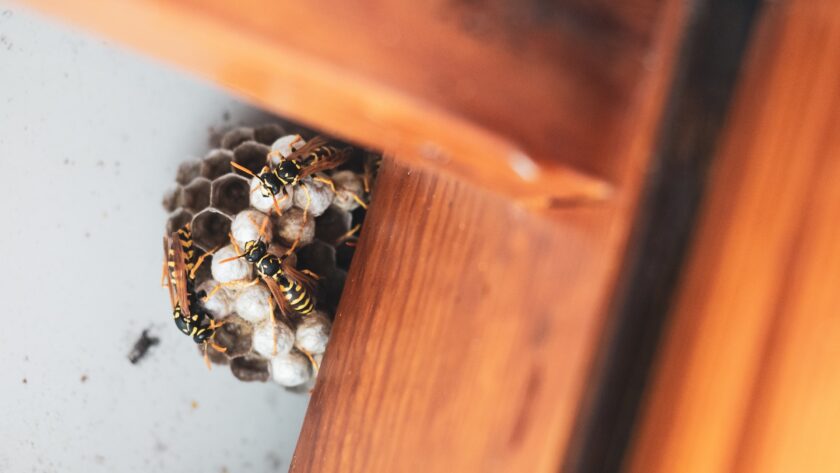Imagine your garden as a vibrant ecosystem teeming with life and harmony. Picture the delicate dance between plants, insects, and animals – a symphony of biodiversity that sustains itself naturally.
Now, envision unwanted pests disrupting this harmonious balance, threatening the health and vitality of your precious plants. This is where organic pest control steps in – like a gentle guardian of your garden’s equilibrium.
Organic pest control is a technique rooted in nature’s wisdom. It harnesses the power of natural predators and eco-friendly methods to combat pests without harmful chemicals or toxins. By utilizing cultural control methods and biological agents, you can create a sustainable environment that not only wards off destructive pests but also fosters the growth of beneficial organisms.
In this article, we will explore the world of organic pest control: understanding its principles, identifying common garden pests, implementing effective strategies, and ultimately creating a balanced ecosystem that thrives on its own accord.
Get ready to embark on an enlightening journey toward sustainable gardening practices!
Contents
Understanding Natural Pest Management
You can easily understand natural pest management by picturing a beautiful garden filled with vibrant flowers and thriving plants protected from pests through organic methods.
Organic pest control is a method of managing pests using natural and environmentally friendly techniques. It involves the use of biological controls, such as predators and parasites, to keep pest populations in check. These natural enemies prey on pests, helping to maintain a balance in the ecosystem.
In addition, organic pest control also utilizes cultural practices like crop rotation and companion planting to deter pests. This approach focuses on preventing pest problems before they occur rather than relying on chemical pesticides.
By choosing organic pest control methods, you can create a healthy garden environment while avoiding the harmful effects of synthetic chemicals on both humans and the environment.
Identifying Common Garden Pests
Spotting those pesky critters lurking in your garden can frustrate and overwhelm you. But fear not, as being able to identify common garden pests is the first step toward effective organic pest control.
One of the most prevalent pests is aphids, small insects that suck sap from plants and cause stunted growth. They can be identified by their pear-shaped bodies and clusters on the undersides of leaves.
Another common culprit is the cabbage worm, which feeds on brassicas like cabbage and broccoli. These green caterpillars have velvety bodies with a faint yellow stripe down their backs.
Slugs and snails are also notorious garden invaders, leaving behind slimy trails as they munch on your precious plants.
By knowing these pests’ appearance and habits, you’ll be better equipped to combat them using organic methods.
Implementing Cultural Control Methods
Feeling frustrated and overwhelmed by those pesky garden critters? Don’t despair; implementing cultural control methods can help you tackle the problem head-on.
Utilizing these techniques allows you to effectively manage pests in your garden without using harmful chemicals. One important method is crop rotation, where you alternate the types of plants grown in a specific area each season. This disrupts the life cycle of pests and reduces their population.
Another effective technique is companion planting, where certain plants are strategically placed together to repel pests or attract beneficial insects that prey on them.
Additionally, practicing good sanitation by removing plant debris and regularly cleaning tools helps eliminate hiding places for pests.
Remember to monitor your garden regularly and take action at the first sign of pest infestation. With these cultural control methods, you’ll be well on your way to a thriving organic garden!
Utilizing Biological Pest Control Agents
Looking to tackle those pesky garden critters? Look no further than utilizing biological pest control agents. These amazing creatures can help you maintain a healthy and vibrant garden, free from harmful pests.
Here are two reasons why you should consider using biological pest control agents:
- They’re environmentally friendly: Biological pest control agents, such as ladybugs and praying mantises, naturally prey on common garden pests like aphids and caterpillars. Introducing these beneficial insects into your garden can reduce the need for chemical pesticides that can harm the environment.
- They promote long-term pest management: Unlike traditional methods of pest control that provide temporary relief, biological agents offer a sustainable solution. These natural predators establish themselves in your garden ecosystem and continue to keep pests at bay year after year.
By incorporating biological pest control agents into your gardening routine, you can achieve effective and eco-friendly results while maintaining a balanced ecosystem in your yard.
Creating a Balanced Ecosystem
Imagine a harmonious garden where every plant, insect, and animal coexists in perfect balance, creating a symphony of life that nurtures and sustains itself. This is the essence of creating a balanced ecosystem in organic pest control.
By encouraging biodiversity and promoting natural predators, we can effectively manage pests without harmful chemicals. For example, planting a variety of flowers attracts beneficial insects like ladybugs and lacewings that feed on harmful pests such as aphids and mealybugs. Similarly, providing shelter for birds encourages them to feast on caterpillars and other insect larvae.
Additionally, using compost and organic fertilizers helps improve soil health, which in turn boosts plant immunity against pests.
Creating a balanced ecosystem not only controls pests naturally but also enhances the overall health and resilience of your garden.
Conclusion
By implementing natural methods and utilizing biological agents, you’ve created a harmonious ecosystem in your garden.
With cultural control techniques at your disposal, pesky garden pests are no match for your expertise. Through this journey, you’ve become an expert in identifying and managing common garden pests.
Your commitment to sustainable and eco-friendly practices has transformed your garden into a thriving oasis. Keep up the fantastic work, and continue nurturing this balanced ecosystem for years to come!




